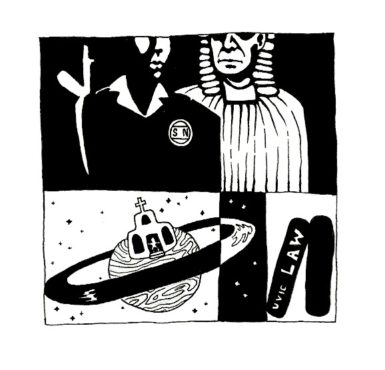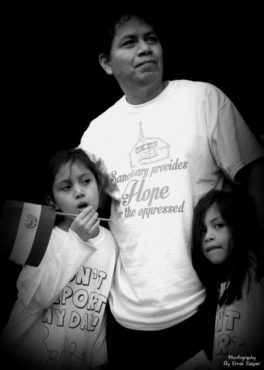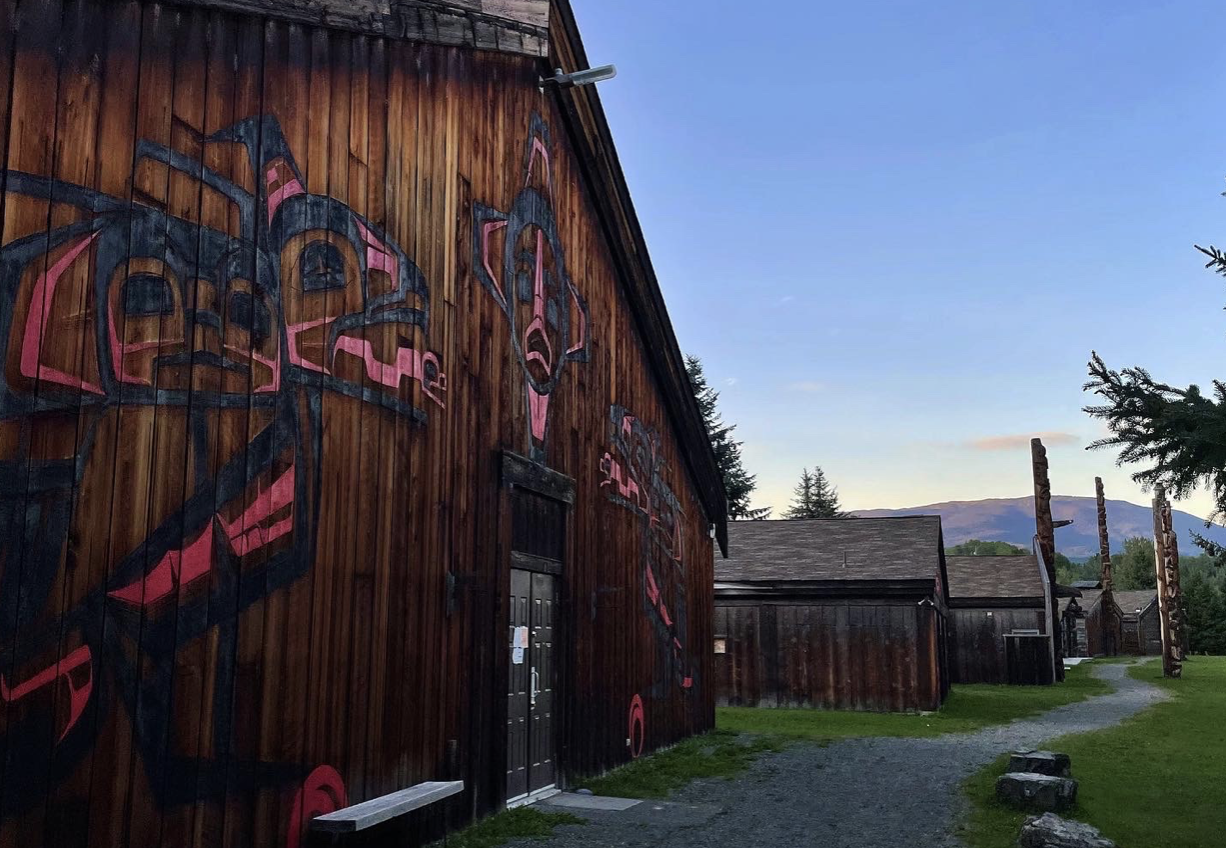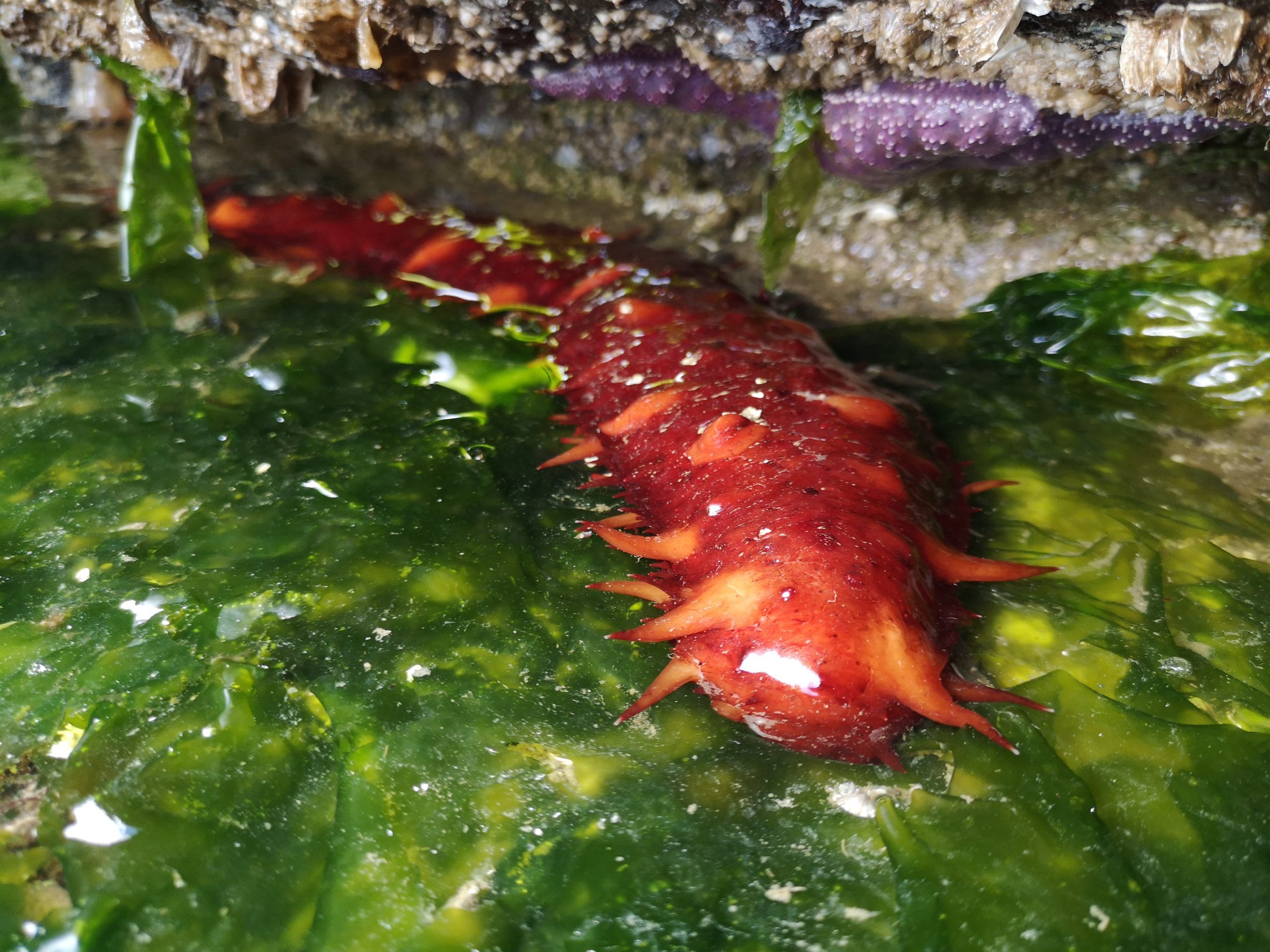Salvadoran refugee studying law at UVic after years of fighting classification as terrorist
Jose Figueroa is a first-year law student at the University of Victoria, yet his path into law was markedly different than that of his peers. By the time Figueroa entered his first year of law school, he had already spent months in B.C. courtrooms fighting for his right to be granted permanent residency in Canada.
A former student leader in El Salvador, Figueroa became an active figure in the student movement opposing the authoritarian military regime that ruled El Salvador in the 1980s. He also became a member of the Farabundo Marti National Liberation Front (FMLN), a political party and guerilla group which sought to defeat the Salvadoran military government. The FMLN won the presidency of El Salvador in 2009 and became the country’s leading party.
Even after El Salvador’s brutal civil war — which left over 70 000 people dead — came to an end in 1992, the situation proved too dangerous for Figueroa and his wife. In 1997, they fled to Canada and applied for refugee protection.
Yet in 2010, over 12 years after his arrival in British Columbia, Figueroa was made aware of a deportation order from the Immigration Division of the Immigration and Refugee Board (IRP). The IRP had received a report from the Canadian Border Service Agency (CBSA), citing Figueroa as inadmissible due to his involvement with the Farabundo Marti National Liberation Front (FMLN). The CBSA accused Figueroa of being a member of a ‘terrorist’ group under Section 34 of the Immigration and Refugee Protection Act.
In Oct. 2013, the CBSA sought to enforce the deportation order, forcing Figueroa — a father of three Canadian-born children — to seek sanctuary in Langley’s Walnut Grove Lutheran Church. He was not able to leave Walnut Grove until two years later in 2015, when the Minister of Immigration granted him a compassionate exemption, allowing him to leave the church. However, Figueroa continued his fight, engaging in litigation with the CBSA and the Ministry of Public Safety in order to fully clear his name beyond the compassion of the government and quash the allegation of terrorism originally brought against him.
I visited Jose Figueroa at his house in Victoria to speak about his experience.
This interview, which took place in person and over email, has been edited for length and clarity.

Graphic by Nat Inez, Graphics Contributor
The Martlet: When did you first get involved with student groups in El Salvador, and what was your involvement with the FMLN (Farabundo National Liberation Front) during that time?
Jose Figueroa: I first got involved with student groups in El Salvador when I started attending the University of El Salvador (UES) in Santa Ana. I was one of the founders of the Sociedad de Estudiantes de Idiomas (SEI) — the Language Students’ Society. Eventually, I became a member of the more general student union, the Western University Campus Society, or Sociedad de Estudiantes del Centro Universitario de Occidente (SECUO). UES had four different campuses throughout El Salvador, and the involvement of the students in political issues affecting the community was very well known and it was seen by the different governments as being linked to the FMLN. It was very well known that the students at the university had a very close relation with the FMLN during that time.
It was through that experience with the SECUO that I became more aware of what was going on in El Salvador. During that time, there was quite a bit of oppression going on. Students, workers and professors from the university were targets of the death squads. Many of my classmates — when I was a member of SECUO — were actually kidnapped or assassinated. I always had to be watching over my shoulder in order to keep safe. In 1989, the final offensive pushed the FMLN and the Salvadoran government to eventually sign the peace agreements in 1992. After the agreements were signed, I was working at a school in Sonsonate for some time, but the situation wasn’t safe for us. By 1996, we had decided it wasn’t safe and we began our journey to come to Canada.
Why wasn’t it safe for you to stay in El Salvador?
Since I was a very well-known student leader, it wasn’t safe particularly for me due to the role I played in my time at the university. We were always the targets of death squads and the repression from the Salvadoran military. It wasn’t safe, so we decided we couldn’t live there any longer.
When we arrived at the border, we submitted a claim for refuge. That application was accepted, eventually we were allowed to come into Canada, where our application was heard. We established in the city of Langley where my son was born. I have two other daughters who were also born here.
Did your eventual deportation order all begin with a single officer in the Canadian Border Security Agency (CBSA) declaring the FMLN a terrorist organization and therefore deeming you inadmissible?
Now, I know that all of this did not start when a single officer from the CBSA declared the FMLN as a terrorist organization. I reviewed the file, and located how, without me knowing it, the CBSA and the Canadian Security Intelligence Services (CSIS) had been preparing to bring forward the allegation [of links to a terrorist organization]. According to my findings, sometime in June 2003, CSIS started to work on a brief report with the allegation, basing it on the fact that in 1997 I admitted that I had been a student organizer with links to the FMLN. As a matter of fact, proving that I had been a member of the FMLN was determinative in my refugee claim. Our refugee claim was being processed, and I had no idea what was being done behind the scenes by immigration officials. It was only in 2009 when I started to realize that something was not okay: I was called in by the CBSA for an interview to talk about the the report that had been written by the CBSA officer alleging that I was inadmissible due to my membership with the FMLN.
—————
“Many of my classmates were actually kidnapped or assassinated. I always had to be watching over my shoulder in order to keep safe.”
—————
Does this continue to be policy within the CBSA, and do you think this could affect other immigrants across Canada?
I don’t think — I know that this is affecting other immigrants across Canada. It seems that since my case has not been too often in the media, CBSA has been starting to deal with some other cases involving the very same allegation. Inadmissibilities into Canada under section 34(1) of the Immigration and Refugee Protection Act (IRPA) [membership in groups linked with terrorism] are very serious allegations and CBSA officers are still getting too much discretion to decide whether the allegations can be brought or not.
There are more cases that are coming up of members of the FMLN. People who have been here for a long time. The CBSA is trying to deport them. They are figuring that enough time has gone by and people have forgotten about my case. But now, Salvadorans who are here have this precedent. If I am inadmissible on these grounds, any Salvadoran would be inadmissible. Canada is home to more than 160 000 Salvadorans, according to statistics from 2010. Many of them were members of the FMLN who came into Canada as refugees because of the conflict. Many of them are now Canadian citizens, so if the allegations is that membership within the FMLN is grounds for inadmissibility, that means that all these Salvadorans that are already here are also inadmissible. There is an inconsistency in the law and the way it’s being applied.
After receiving news that the CBSA was preparing your deportation, you spent two years in Walnut Grove Lutheran Church. How did it feel to be confined within the church for such a long time?
Well, it felt like it really was a prison. During the more than two years, I didn’t even go out the backyard—maybe I got my head out for a few minutes to get some fresh air, but then I went back right back in. My room was small, maybe about three by five square meters. I did have a huge kitchen and an open space inside where I could walk or run. In a way, I was luckier than other fellows who where in sanctuary at the same time in other churches across Vancouver — their churches were even smaller. One year after I claimed sanctuary, I shared the church with a Hungarian family who also claimed sanctuary at the same church. I was happy to have them there, not only for their company, but also because they were also in need of protection against an unjust deportation. The CBSA was always surveilling that no step was taken outside the church.
Being in sanctuary had some effects on my health, and I lost many precious moments with my family. I lost my freedom! This is what made the church my prison.
In 2015, you received a ministerial exemption from the Immigration Minister allowing you to leave Walnut Grove Lutheran Church and claim residency in Canada. Yet you chose to continue litigation against the Ministry of Public Safety, seeking a secondary exemption. Why did you feel the need to still get the Ministry of Public Safety to grant you this exemption?
On Dec. 16, 2015, the Honourable John McCallum, Minister of Immigration Refugees and Citizenship, rendered a ministerial exemption which allowed me to leave Walnut Grove Lutheran Church. This decision was one of the two possible options that I would have considered in order to leave sanctuary. Minister McCallum’s ministerial exemption is based on Humanitarian and Compassionate Grounds.
The Minister of Public Safety, on the other hand, had the authority to render a ministerial exemption, but this exemption was based on a different section of the Immigration Law, namely Section 34(2) of IRPA [Immigration and Refugee Protection Act]. The Minister of Public Safety deals more with enforcing deportations and issues of security.
The allegation of the inadmissibility was, according to the opinion of the CBSA officer, that I was inadmissible because I was a member of an organization that there are reasonable grounds to believe is or was a terrorist organization.
—————
“I needed to clear my name.”
—————
There were two potential things the Minister of Public Safety could do: (a) the Minister of Public Safety can be of the opinion that there are reasonable grounds to believe that the FMLN is or was a terrorist organization, or (b) the Minister of Public Safety can be of the opinion that the there are no reasonable grounds to believe the FMLN is or was a terrorist organization.
The political and legal implications of a response from the Minister of Public Safety are very obvious: if the Minister’s opinion is (a), then there is an opinion of a government official of Canada calling the Salvadoran government (FMLN) a terrorist organization. If the answer to the same is (b), then there is no legal or moral justification for the violation of the human rights of my family.
After I left the church in the December of 2015, the CBSA and other immigration officials continued delaying the processing of the Permanent Residence Card. They even refused to issue a Temporary Resident Permit and a work permit which had already been requested. They alleged that I did not need it anymore. Meanwhile, I could not get my driver’s license renewed and get back to work because I did not have those documents.

Photo provided
Sometime in Jan. 2016, the Minister of Public Safety suggested that it was not necessary for him to make a decision concerning my request for exemption under Section 34(2) of the IRPA. I would have consented to this suggestion if it wasn’t that the actions by the CBSA concerning the processing of the Permanent Residence Card was showing bad faith. Therefore, I indicated to the Minister that I still needed a reply to my request.
I needed to clear my name.
You are now a student in the Faculty of Law at the University of Victoria, and you have even started representing yourself in court. Why did you decide to get yourself involved in law, and how does it feel to be able to represent yourself in court after years of litigation?
The two years I was in the church, all I was able to do was to review my file, review the law. I started to learn about immigration law and criminal law and other laws. In a way, I was studying the law, and eventually I thought, ‘what if I study the law online, because I can’t leave the church?’ The opportunity came when I was in the process of negotiating with the CBSA about the cancellation of the arrest warrant.
I have expanded my views about the law during this time. My passion at this point is to be able to help others. My main motivation to learn and study law is so that I can make a difference — so that what happened to me and my family cannot happen to other families. That’s what’s moving me right now.








